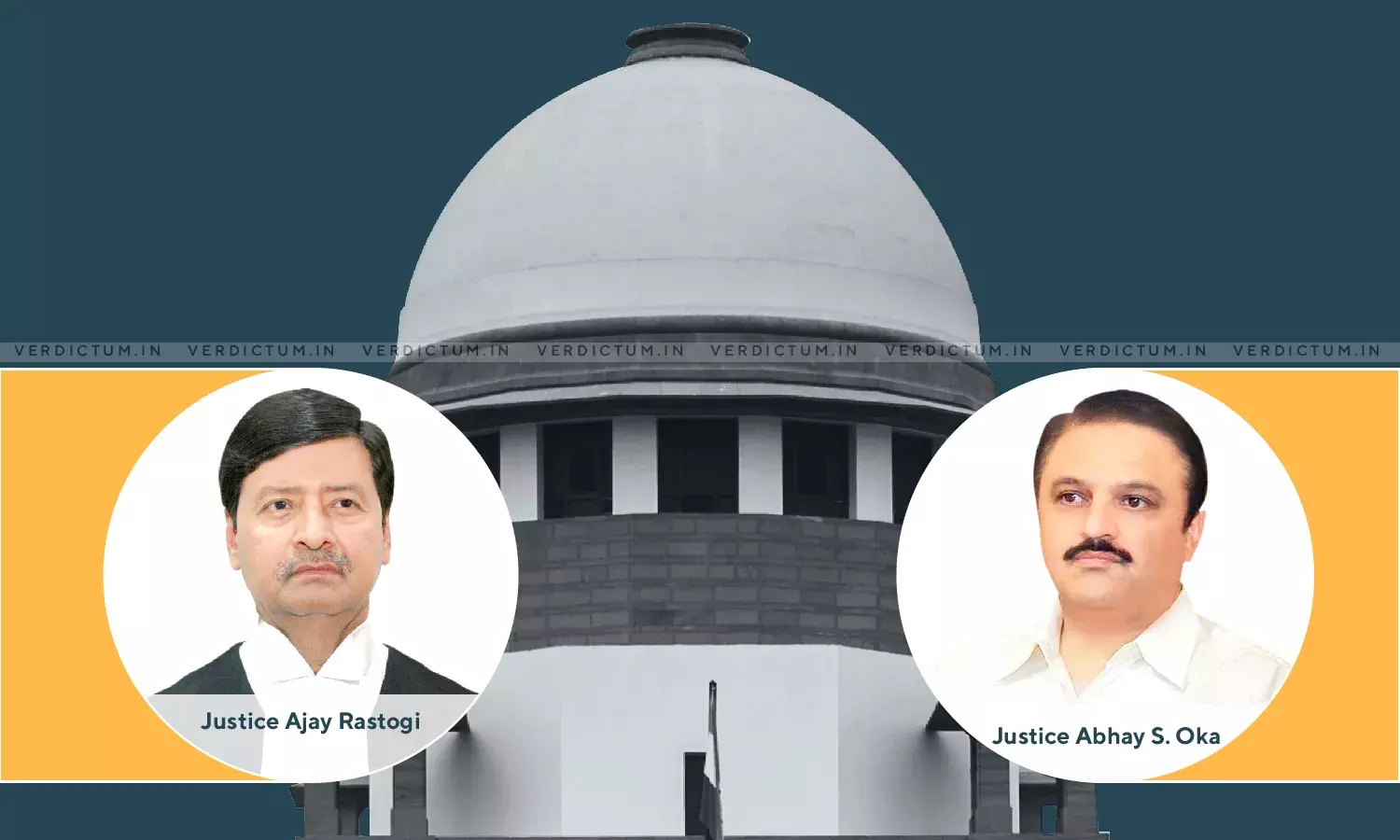First Come First Serve Policy Violates Article 14: SC On 2010 Licencing Policy Of Haryana Govt
A Bench of Justice Ajay Rastogi and Justice Abhay S. Oka has observed that there is a fundamental flaw in the policy of First Come First Serve basis as it involves an element of pure chance or accident. The Bench further observed that, "It is the solemn duty of the State to ensure that a non¬discriminatory method is adopted, whether it is for distribution or allotment of licence on his own land, or alienation of property and it is imperative and of paramount consideration that every action of the State should always be in public interest."
The Bench also explained the term "established practice" and observed that, "It always refers to a regular, consistent, predictable and certain conduct, process or activity of the decision making authority and being the State functionary, its character is supposed to be based on the requirement of higher degree of fairness in administrative action to be tested on the anvil of Article 14 of the Constitution."
The Supreme Court has observed this while upholding a judgment of the Punjab and Haryana High Court that had set aside policy of the Government of Haryana to grant license to build Group Housing Societies at Gurgaon on First Come First Serve basis. The Bench further observed that the policy is alien to the statutes and records of the government and the state government could not show from where the policy was derived.
In this case, appellants were granted licenses to develop group housing societies on their own land, under the Final Development Plan of Gurgaon - Manesar Urban Complex for 2025 on the principle of first come first serve basis. Some of the applicants filed petitions before the High Court questioning the rejection of their claim for grant of licence. The High Court held that the policy adopted by the State authorities for the grant of licence on the principle of First Come First Serve basis cannot be held to be fair, reasonable and transparent method and it led to an unholy race amongst the applicants in achieving their goal of obtaining grant of licence and held it to be against public policy.
The appellants submitted that the licences granted to the appellant were not the subject matter of challenge before the High Court and thus the order is not-sustainable. The policy for grant of licence on First Come First Serve basis was a long-standing practice followed by the respondent authorities and the licence was to be granted to the incumbent of its own land in terms of the parameters which have been laid down under the policy.
The counsel of the state also submitted that the process was initiated for grant of licence on the principle of First Come First Serve basis and this is the practice which was being followed for quite a long time.
However, after hearing the parties, the Bench stated that, "We posed this question to the counsel for the State of Haryana as to from where this principle of First Come First Serve basis for allotment of licence has been borrowed and what is the basis/foundation to hold it as a practice in inviting applications from the prospective applicants on the principle of First Come First Serve basis, but nothing has been placed on record despite opportunity being afforded to substantiate and to support it."
The Court noted that the policy was alien to existing laws and nothing pertaining to the policy was on record while issuing public notice and inviting objections. The Bench observed that, "Although this factor cannot be ruled out that those who are interested parties, they were aware of this so-called alleged practice of First Come First Serve adopted in the office of the State Respondent and that was the reason for which even before the public notice dated 1st October, 2010 came to be published on 4th October, 2010, people start running for submitting their applications as if they are participating in the mad race, without being known to the people at large about the policy according to which the applications are invited for grant of licence to the prospective applicants which is a sine qua non for good governance."
That apart, the Bench stated that such a policy can be misused by any person who has access to the power corridor can apply before issuance of public notice and they can stand first in queue to have better claims.
"The method of selection has to be such that all the eligible applicants get a fair opportunity of competition and it is the bounden duty of the State and its instrumentalities of their action to be conformed with Article 14 of the Constitution of which nonarbitrariness is a significant facet. A public authority possesses powers only to use them for public good. This imposes a solemn duty on the State to act impartially and to adopt a procedure of allotment of licence which is fair play in action."
The Bench upheld the High Court judgment by asserting that, "We find no difficulty in holding that in the first instance there is no such consistent practice as alleged of First Come First Serve basis for allotment of licence available under the entire Scheme placed on record and secondly, from where this principle has been borrowed is alien to the statute and also the policy pursuant to which the process was initiated for allotment of licences to the prospective applicants."
Click Here To Read/ Download The Judgment



